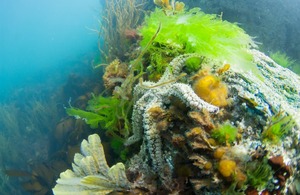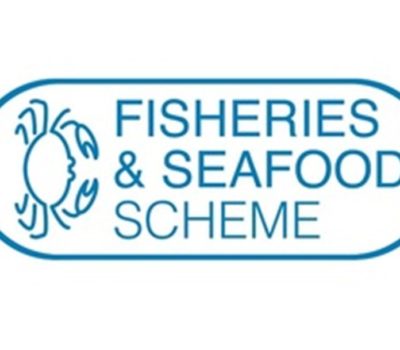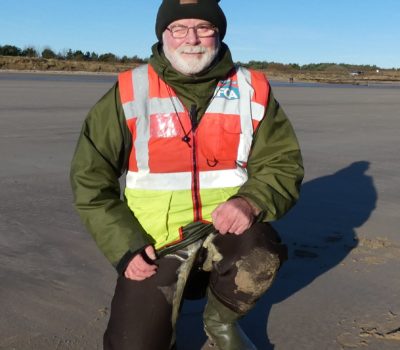NIFCA Team in Local Beach Clean
Officers from Northumberland Inshore Fisheries and Conservation Authority (NIFCA) have conducted a beach clean at Cambois Beach, as part of a training day devoted to the science of climate change and the impacts of pollution, extreme weather and rising sea levels.
During the beach clean, the officers gathered a vast range of items, including disposable BBQs, helium balloons, ropes, broken tennis balls and all types of plastics from bottles and straws to cups, carrier bags and cutlery.
The aim of the NIFCA climate change workshop and beach clean was to consider the potential impacts on the fishing industry, for example the increasing acidification of the sea is making it hard for crustaceans like crabs and lobsters to form their shells, which is extremely important to commercial and recreational fishing in the North East.
The team also discussed the significance of everyone working to reduce their carbon footprint, with an emphasis on what is achievable and realistic in their own lives, including shopping for local produce, eating less meat, taking public transport, lift sharing and switching to green banking or washing clothes at 30 degrees.
The team also considered ways to reduce work-based carbon emissions and how to mitigate the carbon footprint of NIFCA. The team is now working on a long-term climate change and carbon reduction plan.
NIFCA chief executive, Mike Hardy, explains: “We have a collective responsibility to minimise our impact on the planet by promoting positive change and supporting developments in the fishing industry that reduce carbon emissions. As an organisation we are committed to reducing our impact on the planet by creating a sustainable carbon reduction plan.
“The beach clean at Cambois was a terrific way to highlight that keeping our beaches clean is especially important to protect wildlife, as well as the fishing industry and tourism. We can all play our part in looking after our beaches and waterways by taking litter home. Every year thousands of people help to make a difference by taking part in individual and organised beach cleans all over the country.”
NIFCA is based in Blyth and is responsible for looking after the marine environment and promoting sustainable fishing practices. Its district covers the area from the mid-point of the River Tyne to the Scottish border and extends six nautical miles out to sea along the Northumberland and North Tyneside coastline.






